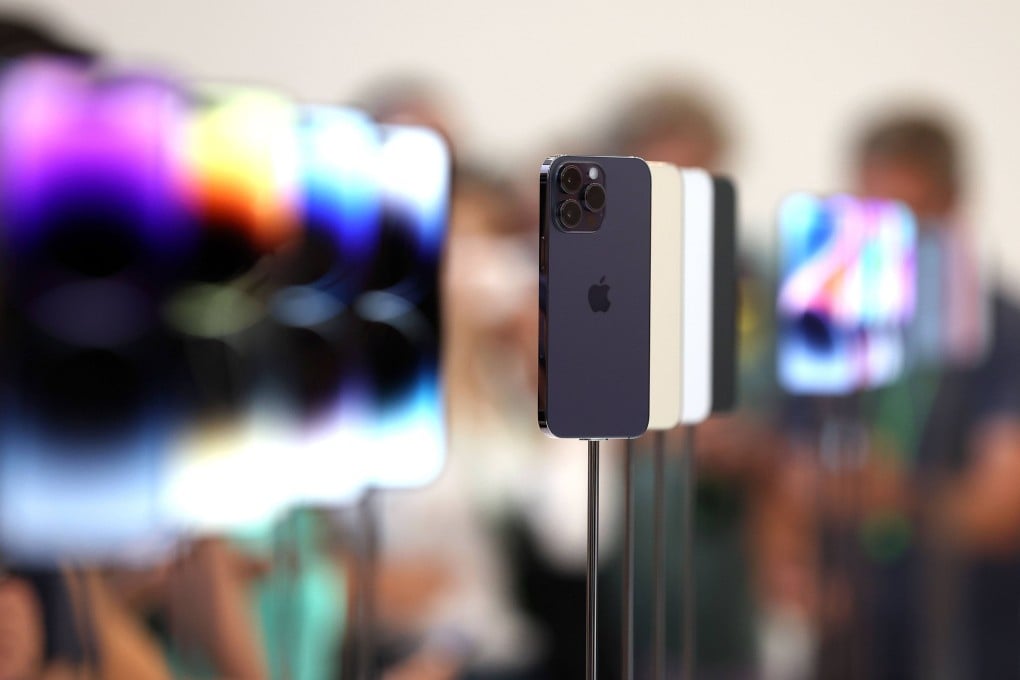Apple’s iPhone 14 receives mixed reaction from China’s netizens but analysts tip it to do well in world’s biggest smartphone market
- Dozens of iPhone 14-related topics trended on Twitter-like microblogging site Weibo on Thursday
- Analysts say the iPhone 14 series can help Apple to continue to wean people off Android phones in the high-end segment in China

The Cupertino-based smartphone giant on Wednesday unveiled four new models of its iconic iPhone: the iPhone 14, iPhone 14 Plus, iPhone 14 Pro and iPhone 14 Pro Max, with prices beginning at 5,999 yuan (US$862) for the mainland China market. Pre-sales will start this Friday and the new models will be available officially from September 16.
Dozens of iPhone 14-related topics trended on Twitter-like microblogging site Weibo on Thursday. While there was excitement, some commentators appeared unimpressed by the absence of major advances in battery performance and processor development in the latest models.
“So what’s the improvement in the iPhone 14 compared to the iPhone 13?” said one well-liked comment. “There’s hardly any innovations. I’ll just stick to my iPhone 12 for one more year and save some money,” said another.
However, some users sang the praises of Dynamic Island, a newly-introduced feature that turns the notch of iPhone 14 Pro models into a hub for notifications and user interaction. “This is the right way to use a full display screen, using the system to make up for a flaw,” said the most up-voted comments on Weibo.
Chinese netizens were also keen to compare Apple’s iPhone 14 series with the latest Android handsets, especially the Huawei Mate 50 high-end model that was also introduced this week. Due to US sanctions that restrict the Chinese tech giant’s access to advanced semiconductors, the Mate 50 came without 5G support but touted a new satellite communications feature.
The iPhone 14 also supports satellite connectivity for emergency services.
“Without 5G, I don’t think Huawei has any advantage over Apple this time,” said one popular comment on Weibo.